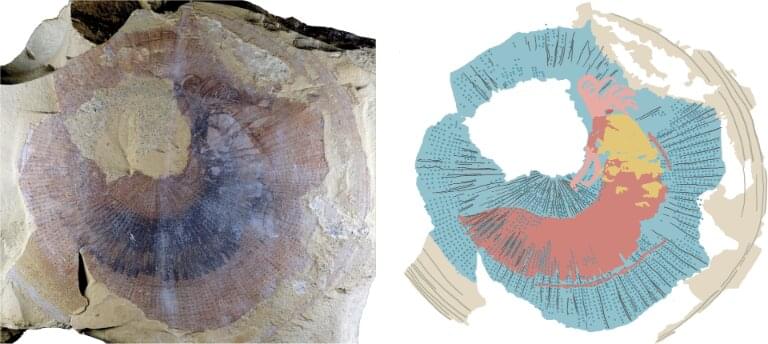Exceptionally well-preserved fossils from the Cambrian period have helped fill a gap in our understanding of the origin and evolution of major animal groups alive today.
A new analysis of fossils belonging to an extinct invertebrate called Rotadiscus grandis have helped place this species in the animal tree of life, revealing how some characteristics of living species may have evolved independently rather than originating in a single common ancestor.
Half a billion years ago, an unusual-looking animal crawled over the sea floor, using tentacles to pick up food particles along the way.
